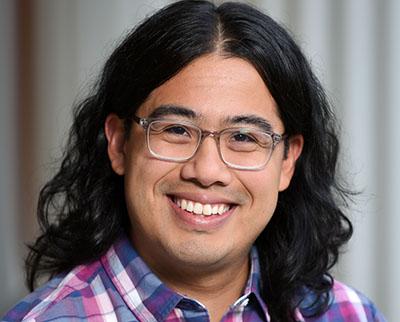September 19, 2023

Ungson, assistant professor of psychology, along with research partners from Lehigh University, found that the stress experienced at the pandemic’s onset decreased over the first few months of the pandemic and then leveled out – importantly, the decrease in stress was more dramatic among people who felt a strong social and psychological connection with their local communities.
In an article published in the journal Social and Personality Psychology Compass, Ungson concluded that community identities were stronger predictors of stress decreases than the social groups that respondents claimed were highly important to them, such as family and friends. These results held firm regardless of age, gender, political conservatism and other variables.
“This research provides important insights into the importance of social identities, and specifically local communities, during times of crisis,” Ungson said.
Ungson and his research partners collected approximately 2,500 surveys starting in April 2020 through April 2021. Participants were dispersed throughout 49 U.S. states. Of the respondents, the median age was 32, most were white and 53% were female, Ungson said.
Local communities stood in for other forms of support early in pandemic
As Ungson explained, other important sources of support — family, religious affiliation or work colleagues — did predict reduced stress later during the pandemic. This suggests that these groups, which were disrupted as sources of social connection early on, became more available as circumstances stabilized and restrictions on gatherings loosened and vaccines became available, allowing people to return to their families or close friends. Until then, people were likely forced to lean on their local communities, he said.
“Our results suggest that American residents who experienced strong social connections with their local communities were better able to weather the storm of the global pandemic,” Ungson said. “This also tells us that communities and community amenities are important outside of the impacts of massive pandemics — things like libraries, community centers and trails. It’s easy to cut these sorts of things for budgetary purposes, but if they can help protect against stressful events, then we should support them.”
Katelyn Bucher ’24, a psychology major from Selinsgrove, Pennsylvania, assisted Ungson with his research between September 2022 and April 2023 and is listed as an author on the published scholarly article. Her greatest challenge, she said, was organization of the large data set — over 2,000 participants, measured at five time points.
“I was able to use data analysis tools to assist in the research and organization,” Bucher said. “I am in the process of applying to graduate schools and the research experience I gained with Dr. Ungson allows me to be a marketable candidate and will help me in my career ambitions as a clinical mental health counselor.”
This is Ungson’s second research foray into the psychology behind how individuals responded to the Covid-19 pandemic. Read about his previous research here.
Learn more about Susquehanna’s Department of Psychology.
